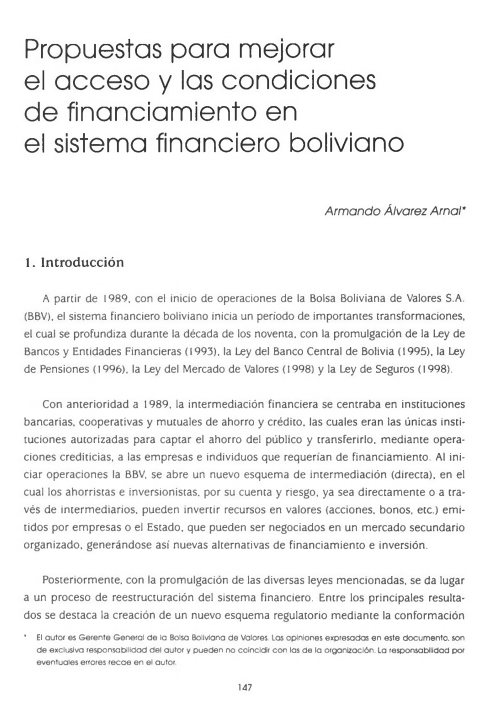Proposals to improve access and conditions of funding in the Bolivian financial system
DOI:
https://doi.org/10.35319/lajed.20078193Keywords:
Bolivian financial system, tax regulations, saving, investmentAbstract
Beginning in 1989, with the start of operations of the Bolivian Stock Exchange S.A. (BBV), the Bolivian financial system begins a period of important transformations, which deepened during the decade of the nineties, with the promulgation of the Law of Banks and Financial Entities (1993), the Law of the Central Bank of Bolivia (1995), the Pension Law (1996), the Securities Market Law (1998) and the Insurance Law (1998).
Prior to 1989, financial intermediation focused on banking, credit union and mutual savings and credit institutions, which were the only institutions authorized to capture savings from the public and transfer them, through credit operations, to companies and individuals that required financing. When the BBV starts operations, a new intermediation scheme (direct) is opened, in which the savers and investors, at their own risk, either directly or through intermediaries, can invest resources in securities (stocks, bonds, etc.) issued by companies or the State, which can be negotiated in an organized secondary market, thus generating new financing and investment alternatives.
Downloads






